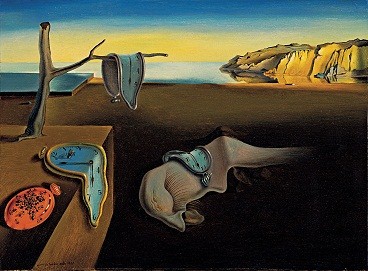On 26th September, I attended Crossref LIVE in London, one of their series of local outreach meetings. These are aimed at “the whole community, welcoming publishers, librarians, researchers, funders, technology providers, and members alike to share their thoughts and to find out more about who we are and how to get the most out of Crossref”.
What’s new at Crossref (Ed Pentz) (slides)
Crossref’s free-to-attend global annual meeting (#LIVE17) will take place in Singapore on 14-15 November 2017
A reminder of Crossref’s basic truths:
- Smart alone, brilliant together
- If you publish, you’re a publisher
- One member, one vote
- Love metadata, love technology
- Politic, not political
- Here today, here tomorrow
16-member board of directors. Elections are coming up in November
Numbers to date: 91.6 million Crossref-registered DOIs. 8,793 Crossref member organisations. More info on the Crossref Dashboard
Crossref collaborates with ORCID, COUNTER, DataCite, CLOCKSS, I40C, JATS, CHORUS, SHARE, Scholix & more…
New initiatives (Geoffrey Bilder) (slides)
Organization Identifier Working Group – we’ve got persistent identifiers for objects (DOIs), people (ORCID iDs), and this is next piece of the puzzle. Organisation identifiers are a different type of problem from person iDs – organisations can merge, split, go bankrupt and reinvent themselves, have legal entity names often different from common names (e.g. “Harvard University”, formerly “Harvard College”, formally “The President and Fellows of Harvard College“) so the data model is harder.
Outputs from this project will be open. The organisational iDs dataset will be around 75,000 iDs – much smaller than Crossref, ORCID, and Datacite are used to! Most likely use case is providing controlled vocabulary for organisation names (institution lookup).

Simple comparison widget – shows importance of including country name
No hierarchy info so can’t link a departmental entry to top-level entry for an organisation. Can compare affiliation matching – search across grid.ac, Open ISNI, Wikidata and others and see results from each. It even works for collegiate universities e.g. Jesus College will find matches for Oxford and Cambridge.
Why didn’t this project use Ringgold as a starting point? Ringgold is proprietary and didn’t give Crossref the whole dataset, but there is some representation of it in Open ISNI.
How to build it, manage it, fund it? Questions for the organisation identifier group…
Metadata 2020 (Ginny Hendricks) (slides)
Looking to tell a broader story about the point of richer metadata.

Prototype of a participation report – Elsevier contribute a lot
Many publishers didn’t know what metadata they were giving Crossref as they had outsourced that responsibility. The participation report above shows how much is being contributed in terms of: funding information, award numbers, license URLs, preference lists, full-text URLs, ORCID iDs, Crossmark data. Encourage publishers to engage with data sharing.
Metadata 2020 is a collaboration that advocates richer, connected, and reusable, open metadata for all research outputs, which will advance scholarly pursuits for the benefit of society.
- Richer: Richer metadata fuels discoverability and innovation.
- Connected: Connected metadata bridges the gaps between systems and communities.
- Reusable: Reusable, open metadata eliminates duplication of effort.
Join the growing numbers of advisors and advocates for Metadata2020!
Global reach of Crossref Metadata (Rachael Lammey) (slides)
What do people do with Crossref metadata? Search, discovery, mining services. Crossref metadata is used all over the world, with particularly rapid growth in Asia Pacific.
Bbibliographic management software also uses Crossref metadata. Authorea, Pensoft, ARPHA, and RIO Journal all use Crossref API for “cite while you write” functionality.
Other uses include library systems, manuscript tracking systems, scholarly sharing, specialist subject databases, author profiling tools.
This leads to conversations like “we’d love to see rights-declaration metadata”…
Metadata use Case Studies, Coko Foundation (Jure Triglav) (slides)

Jure facing a world of metadata standards, organisations, and jargon
Jure used an effort vs impact quadrant to sort e.g. high impact/low effort = things to be investigate. Clear that any successful projects would involve considerable effort and many stakeholders.
New Product Developments (Jennifer Lin) (slides)
Quick plug for PIDapalooza, the festival of persistent identifiers: 23-24 January 2018, Girona (Spain)
What is metadata? Data about data, but this doesn’t capture all the ways researchers use it in the digital environment, nor how it is no longer centrally controlled and curated

Infrastructure for scholarly discussion

New content type: Reviews

Event data
See the live demo of events flowing through Crossref Event Data (I could watch this for hours).

Data and software citations
Crossref future direction (Ed Pentz) (slides)
A reminder about the guidelines for correct display of DOIs (see also Guidelines on the display of ORCID iDs and DataCite DOI Display Guidelines)

THE OFFICIAL DOI DISPLAY GUIDELINES HAVE CHANGED
Crossref’s strategic planning exercise involved identifying organisational strengths, and future critical uncertainties
Opportunities to expand constituencies and sevices, radically simplify services, track provenance and relationships with metadata, build quality control for metadata, implement open source across scholarly comms…

“#opensource, which is collectively beneficial to full scholarly publishing industry and scholarly communication more broadly”
The meeting concluded with discussion, data, and drinks. Thank you to Crossref and all the attendees for a lively and thought-provoking event!
![Arrival: have ORCID@5 video playing https://vimeo.com/238076634 | Introductions: people introduce themselves and tell the group about their role in the project | Canapés: guided tour of Welcome to ORCID https://orcid.org/help | Refreshments: serve virtual drinks e.g. [Gabriela served an ORCIDinha to Laura], and people share any dressing up or drinks/snacks they’ve prepared for the party | Tapas: tour of outreach resources http://members.orcid.org/outreach-resources | Entertainment: play Why ORCID? video https://vimeo.com/237730655 | Thank guests, and close.](https://darkarchive.files.wordpress.com/2017/10/menu.png?w=444&h=604)













